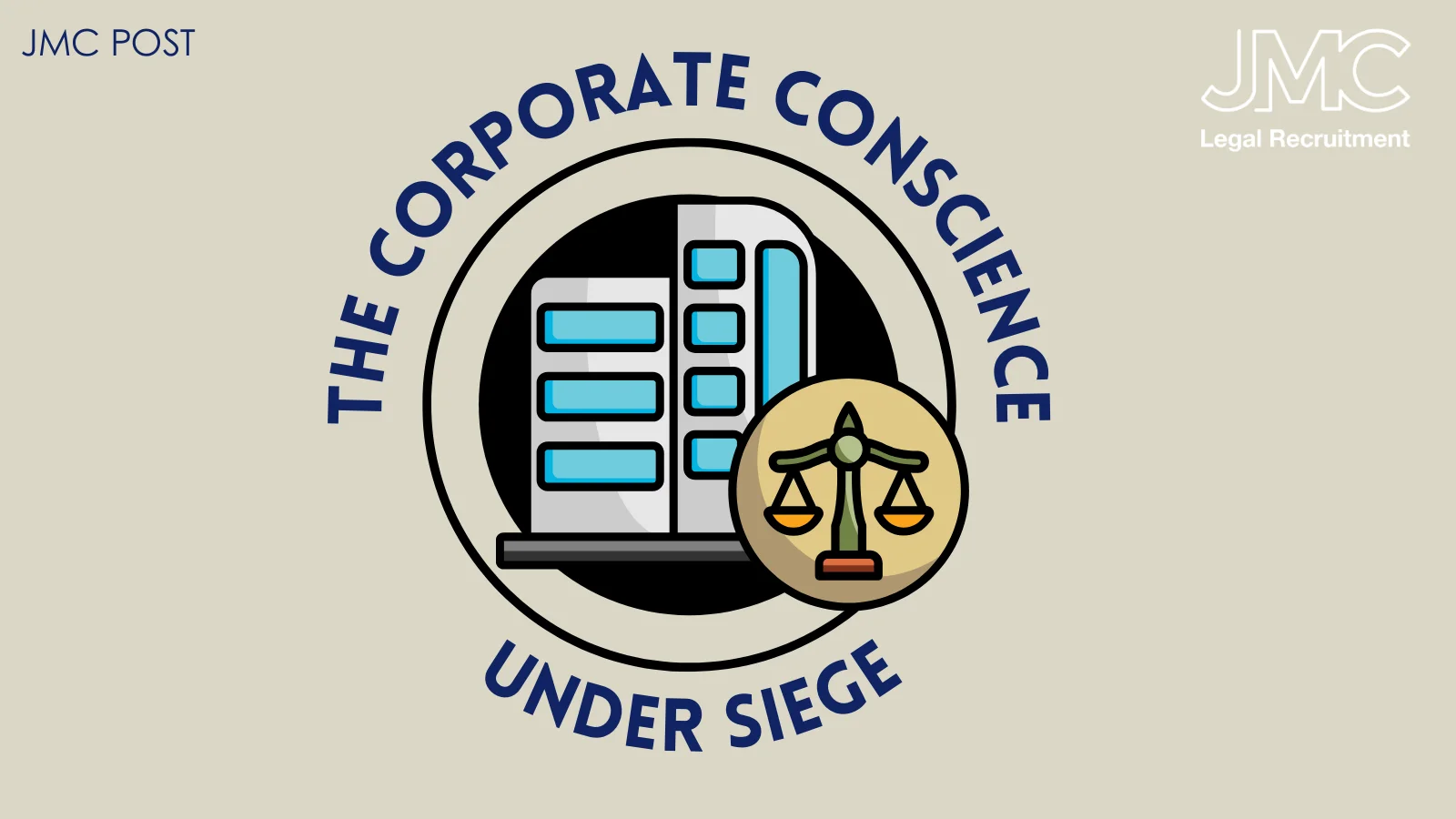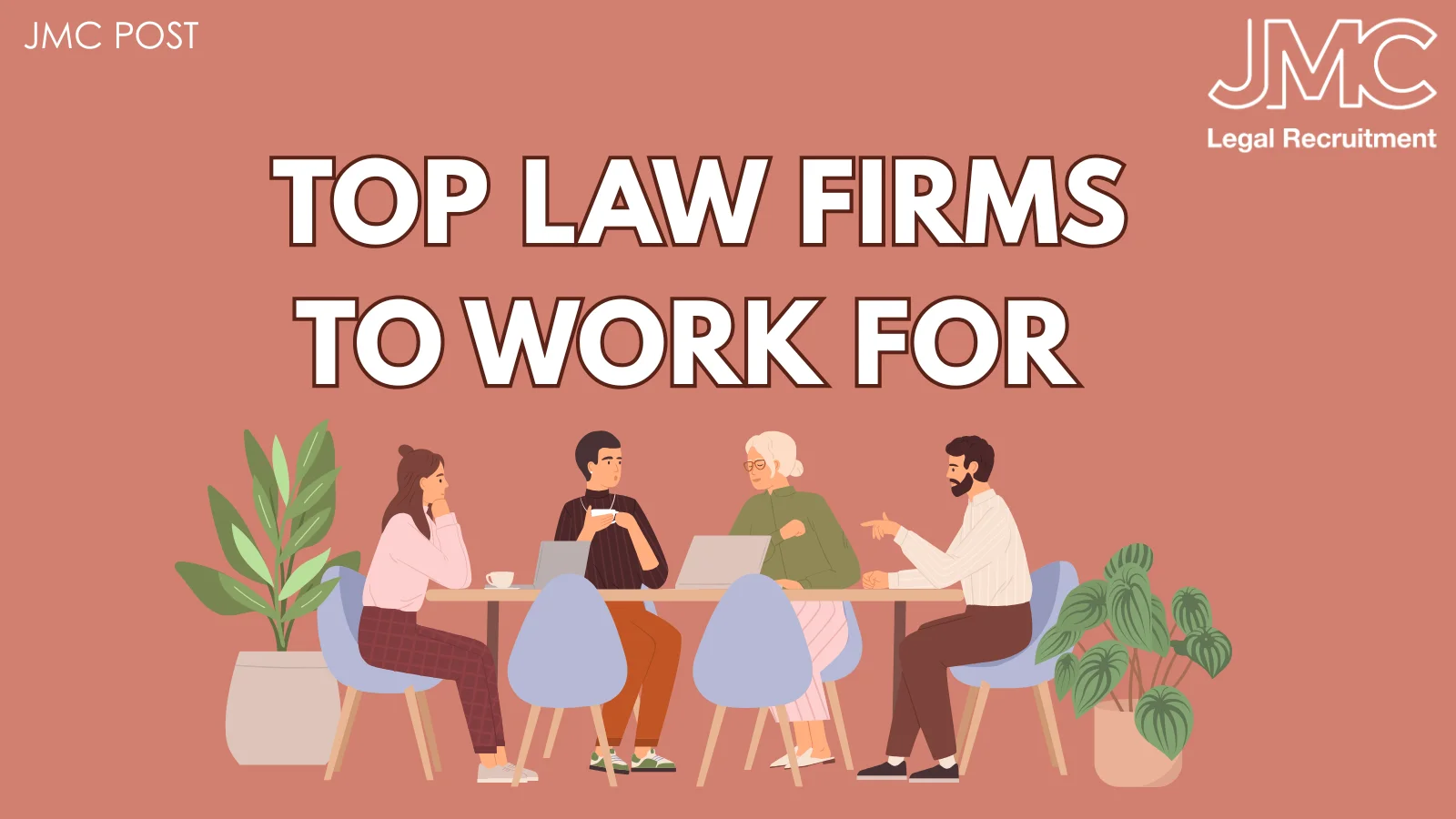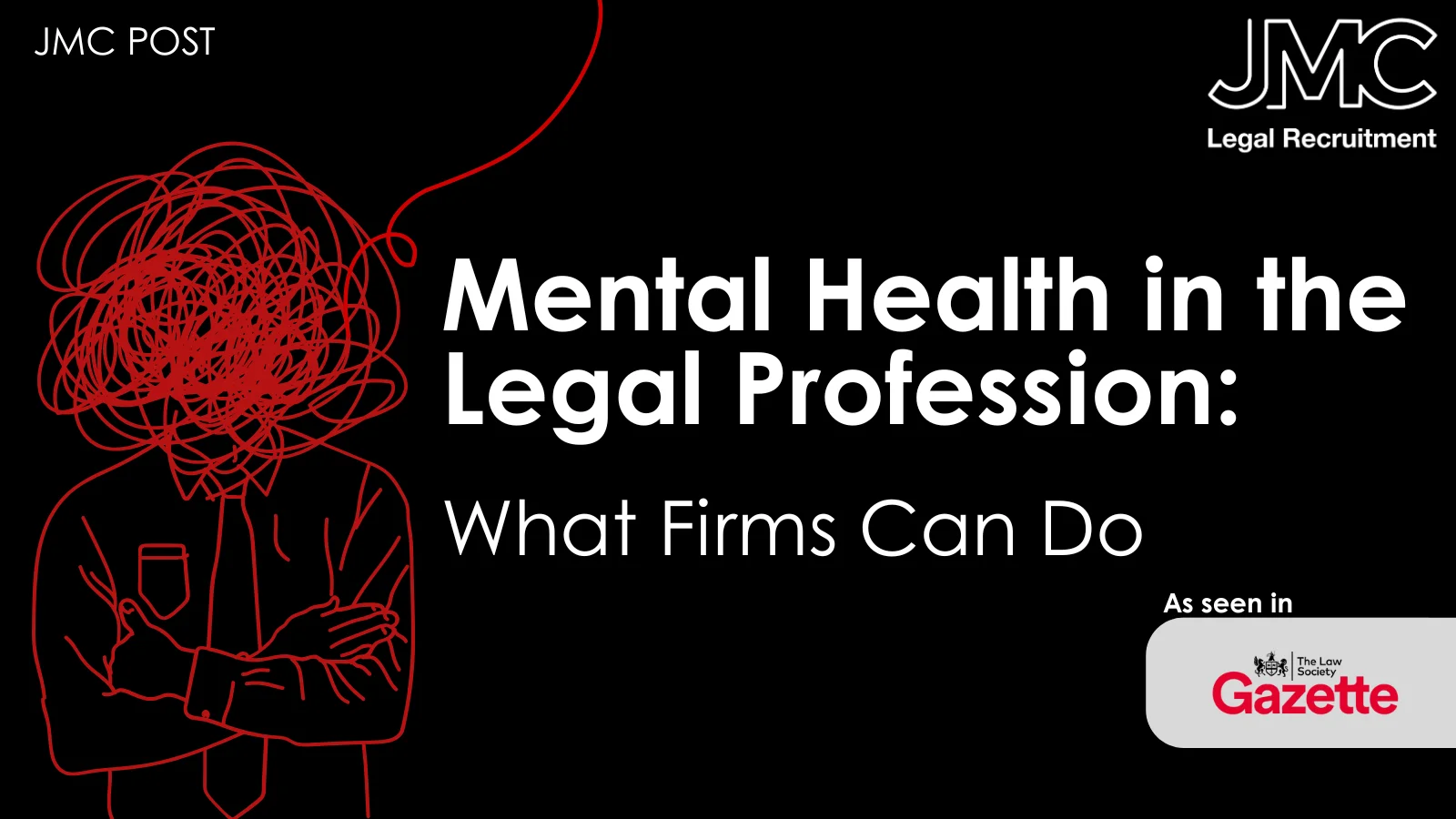
Top Law Firms to Work For in 2025
10 Jun, 20255 minutes
Top Law Firms to Work For
From Boutique Winners to Magic Circle Firm Giants: The Law Firms Successfully Balancing Record Profitability with Solicitor Wellbeing.
RollOnFriday recently released its highly anticipated, unfiltered list of the Best Law Firms to Work At 2025, with a spotlight on work/life balance, a category that continues to rise in importance across all levels of the legal profession, we have found an 61% increase in this being within a candidates top 3 motivators for when looking for a new role, compared to five years ago.
Two firms, Russell-Cooke and Clarke Willmott, led the rankings with an impressive 88% satisfaction score from employees. From junior lawyers to partners, the consensus was clear: these firms allow people to build successful legal careers without sacrificing their lives outside the office.
The data from this year’s rankings aligns closely with what I’ve seen first-hand: candidates are no longer just looking for prestige and pay, they want purpose, autonomy, and flexibility.
So, what actually makes a law firm one of the best places to work in law today?
A Generation Redefining Legal Careers
Let’s start with the obvious: what lawyers expect from their employers is not what it was 10 years ago.
Over the past few years, we’ve seen a generational shift that’s redefining how firms attract and retain talent. Each generation of legal professionals brings different values and expectations to the workplace:
Baby Boomers (born 1946–1964)
- Prioritise stability, loyalty, and clear hierarchies
- Value long-term tenure and structured career paths
- Often bring deep institutional knowledge and experience
Generation X (born 1965–1980)
- Seek work-life balance and practical benefits like healthcare and pensions
- Want autonomy in how they work and dislike micromanagement
- Typically favour a strong work ethic paired with flexibility
Millennials (born 1981–1996)
- Are drawn to purpose-driven organisations and inclusive culture
- Expect continuous feedback, development opportunities, and flexible working
- Value meaningful work over merely prestigious titles
Generation Z (born 1997 onwards)
- Prioritise mental health support, sustainability, and diversity
- Expect tech-integrated environments and flexibility as standard
- Want clear opportunities for learning, growth, and making an impact
If you're wondering, "What kind of law firm culture will keep Gen Z lawyers engaged?", the answer is simple: a firm that listens, adapts, and invests in its people’s wellbeing.
The Data Behind Work/Life Balance
The LexisNexis 2024 Legal Sector Benchmarking Report found that 68% of lawyers under 35 rated work/life balance as their top career priority- ahead of salary and promotion. This figure has more than doubled over the past five years.
Simultaneously, the Thomson Reuters Institute 2024 study shows that 71% of UK lawyers now work from home at least twice a week, and 82% would turn down an otherwise ideal job offer if it lacked hybrid flexibility.
This matches the sentiments we’re hearing across the board: lawyers at all levels increasingly expect to be trusted to do their work well without sacrificing their health, family, or autonomy.
Which raises an important question: Is your law firm offering flexibility because it’s convenient, or because it’s core to your culture?
The best law firms to work for in the UK are the ones that have answered this question honestly, and acted on it.
What Top-Ranked Firms Are Doing Right
The RollOnFriday rankings offer a glimpse into what genuine flexibility looks like when it’s embedded into culture, not added on as an afterthought:
- At Russell-Cooke, there is “no stay-late culture” and partners offer “high levels of autonomy and trust.”
- Clarke Willmott lawyers reported never needing to cancel holidays due to work — even partners step in to protect team members’ time off.
- Michelmores was praised for an “Agile Working Policy” that truly supports carers, parents, and those with unique schedules.
- Bird & Bird received glowing reviews from lawyers who can work from home in the morning and leave early for the school run without fear of judgment.
- Burges Salmon has a consistent reputation for combining challenging work with a genuinely supportive, respectful culture.
These firms have one thing in common: they treat their lawyers like adults, measure success on outcomes, not hours, and understand that wellbeing leads to performance, not the other way around.
The Role of Progression and Recognition
While flexibility is crucial, it’s not the only factor lawyers consider when assessing a firm’s appeal. Increasingly, lawyers are asking: What is my long-term potential here? and Will my contributions be recognised?
Top law firms understand that career progression isn’t one-size-fits-all. What distinguishes the best workplaces is a commitment to structured development paths, transparent promotion criteria, and recognition that goes beyond billing targets.
Firms such as Mills & Reeve and TLT, for instance, are known publicly not only for work/life balance, but also for clearly mapping out advancement opportunities. Associates understand what’s required to move forward, and partners actively mentor the next generation.
Recognition also plays a key role. Whether through meaningful feedback, tailored development plans, or awards and internal visibility, lawyers want to feel valued, not just as legal technicians, but as contributors to a firm’s culture and future.
Ultimately, what lawyers are really asking is: “Am I growing here?” If the answer is unclear, they’ll look elsewhere, and often, to your competitor.
The Cost of Getting It Wrong
Not all firms hit the mark. Lower-ranked firms in the survey revealed stories of late nights, weekend work, and even burnout. One junior lawyer at a leading City firm said they were on track for a 2,000+ hour year, adding: "I’d rather see my daughter than get the bonus."
Others cited inconsistent flexibility across departments or being discouraged from taking time off. At some firms, presenteeism is still seen as a badge of honour. But in today’s legal market, that mentality is increasingly a liability. Candidates are Googling things like:
- Which law firms in the UK support hybrid working?
- What are the best law firms for mental health and flexibility?
- Which firms offer the best culture for working parents in law?
If your firm doesn’t show up in those conversations, or worse, if it shows up negatively, you’re losing ground.
So… What Does It Mean to Be the Best Law Firm to Work For?
It means understanding your workforce. It means aligning your policies with your people’s values. And above all, it means seeing your staff not just as resources, but as individuals with lives, responsibilities, and aspirations outside of billable hours.
Being one of the best law firms to work for in 2025 means:
- Supporting employees across all life stages, from parental leave to menopause to mental health
- Offering clear paths for development alongside flexibility and balance
- Creating a culture of respect, purpose, and adaptability
- Building inclusive leadership that reflects the values of the people it leads
It’s about delivering top-tier client service while also fostering sustainable careers. That’s what today’s lawyers want and what tomorrow’s talent will demand.
At JMC Legal, we work with firms every day that are navigating this transformation, some are leading it, others are playing catch-up. If you’re a law firm leader wondering whether your firm is viewed as a top employer, or a lawyer looking to join one, we’d be happy to have that conversation.
Because in 2025, to be one of the best law firms to work for in the UK the real competitive edge lies in alignment.
Source: RollOnFriday
Related Articles:
[From Burnout to Balance: A Personal Journey Toward Mental Wellbeing]
[2025 Trends in Partner Hiring and Lateral Moves: A Strategic Guide for Law Firms and Candidates]



